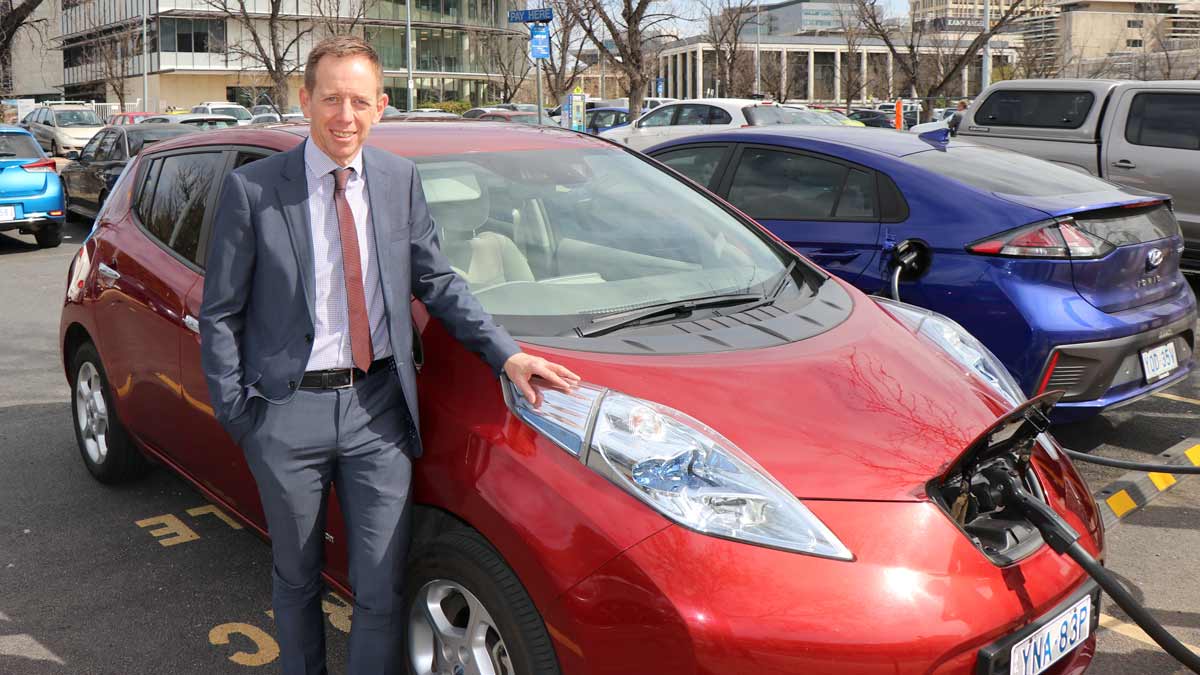Australia’s domestic gas market faces a demand ‘death spiral’, as more households and businesses stop using gas – as part of efforts to cut emissions – and leave large portions of Australia’s domestic gas infrastructure effectively stranded.
It’s a warning issued by ACT energy minister Shane Rattenbury, speaking at the Smart Energy Expo in Sydney, who says electrification of energy will be the most effective way to cut household emissions and energy costs.
Rattenbury raised the prospect of a ‘death spiral’ in the domestic gas market, triggered by a growing number of households and businesses reducing or eliminating their gas use.
“Should demand decline materially, the Australian Energy Regulator anticipates fewer customers sharing the fixed network cost for gas and the potential for gas infrastructure assets to become stranded, and price uncertainty potentially driving further decline in demand,” Rattenbury said.
“They start to refer to the death spiral of what is going to happen to the gas network.
“Given the scale of assets involved and the current reliance on gas, this is a very complex policy question that we’re going to need to grapple with at a national level.”
Having already overseen the ACT switching 100 per cent of its electricity supplies to renewable energy sources, Rattenbury says the ACT government is now focused on a transition plan away from fossil gas, to drive further reductions in greenhouse gas emissions and progress towards its net zero by 2045 target.
“In moving to 100 per cent renewable electricity, the government essentially just did that. We took the contracts out with the suppliers. We changed the legislation. And our community went along with it,” Rattenbury said.
“As we look at those next trenches of emissions, it gets a lot harder. Instead of the government simply putting the measures in place, we actually need some significant community engagement to get us there.”
“One of the things that is very clear to us is the electrification pathway is the answer. The very clear answer is that electrification is the most practical and cost-effective pathway for us.”
Rattenbury says he sees no long-term future role for gas in the mains gas network, as it is not feasible for the current supplies of fossil gas to be replaced with hydrogen or biogas.
“Our analysis suggests that green gases cannot fully replace a network distributed fossil fuel gas in the ACT,” Rattenbury told the conference.
“They potentially can play a niche role. They can play particular roles in things like heavy transport, or perhaps in industrial applications, but we do not see a future where we will be piping hydrogen or biogas to individual consumer households.”
“Switching to 100 per cent hydrogen would likely require a complete replacement of gas appliances with hydrogen ready appliances. Every single household and any company that has a gas connection would need to change their devices.”
While both hydrogen and fossil gas can be used as a source of thermal heat, the different burn characteristics of hydrogen would likely require the installation of specialised appliances. Injecting high concentrations of hydrogen into standard gas pipelines can also lead to significant degradation of the pipes.
Rattenbury said that electrification would be the most effective way to decarbonise residential energy use, echoing the calls from energy technology experts like Saul Griffith, who has called for as much energy use as possible to be shifted to electricity, so that it can be met with zero emissions supplies of wind and solar.
This week, ACT independent senate candidate David Pocock unveiled his proposal for an electrification pilot in a Canberra suburb to demonstrate the benefits of switching all residential energy use and transport onto electricity.
Pocock said that such a pilot could achieve significant reductions in energy costs and emissions and that he would seek to engage the ACT government in any implementation of a ‘suburb zero’ pilot.









